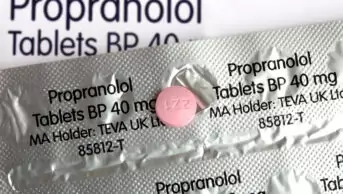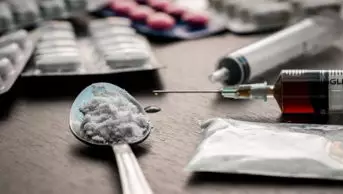
Shutterstock.com
Twelve projects across the UK have been awarded a share of £5m to develop initiatives to use cutting–edge technology to reduce rates of fatal drug overdoses.
The Office for Life Science, in partnership with the Scottish government’s Chief Scientist Office, will give 11 projects up to £100,000 each to run four-month feasibility studies to develop prototypes, including the use of AI technologies to detect drug overdoses, drones to deliver antidotes and wearable technologies, such as watches, to detect overdoses and alert healthcare professionals or family members.
A further project has been given £500,000 for a one-year demonstration study collecting real-world evidence from residents of homeless accommodation.
The studies will begin in September 2023, with those that show promising results able to apply for grants of up to £500,000 to carry out follow-on 12-month demonstration projects from May 2024.
The innovation challenge is being run by the Scottish government’s Chief Scientist Office, which has invested £500,000 of the funding, and the Office for Life Science has invested the remaining £4.5m. NHS Fife health board will lead the programme management.
On 22 August 2023, Scotland recorded its lowest number of drug misuse deaths since 2017, with the latest statistics published by National Records of Scotland (NRS) showing 1,051 people died owing to drug misuse in 2022 — a decrease of 279 deaths compared with 2021.
Despite this fall, NRS said: “Drug misuse deaths are still more common than they were two decades ago. After adjusting for age, there were 3.7 times as many drug misuse deaths in 2022 compared with 2000.”
Opiates and opioids, including heroin, morphine and methadone, were implicated in more than eight out of ten drug-related deaths in Scotland in 2022, with the majority of drug misuse deaths classified as accidental poisonings.
“Tackling drug-related deaths is a huge priority for the Scottish government and NHS Scotland,” said Dame Anna Dominiczak, chief scientific advisor for health to the Scottish government.
“Our commitment to tackling these issues through targeted research, innovation and support can be seen in recent figures, showing a reduction in drug-related deaths in Scotland, the lowest annual total since 2017.”
Commenting on the funding and drug deaths in Scotland, Claire Anderson, president of the Royal Pharmaceutical Society, said: “The £5m funding and partnership with the Scottish government through their National Mission [on drug deaths] is an important step towards reducing drug-related harm.
“We have published a policy statement containing 14 recommendations to reduce harm from drugs and drug deaths, and we look forward to working with all stakeholders to progress these.”
Catriona Matheson, professor in substance use at the University of Stirling and former chair of the Scottish government’s Drug Deaths Taskforce, said the funding for new technologies “should bear fruits in the medium term”.
“In the meantime, the strategic plan developed by the Drug Deaths Taskforce has contributed to the reduction in drug-related deaths in Scotland in 2022.
“This included: expanding naloxone distribution, national standards for medication-assisted treatment to make treatment more accessible, assertive outreach for people experiencing non-fatal overdose and targeting people with multiple complex needs.”


